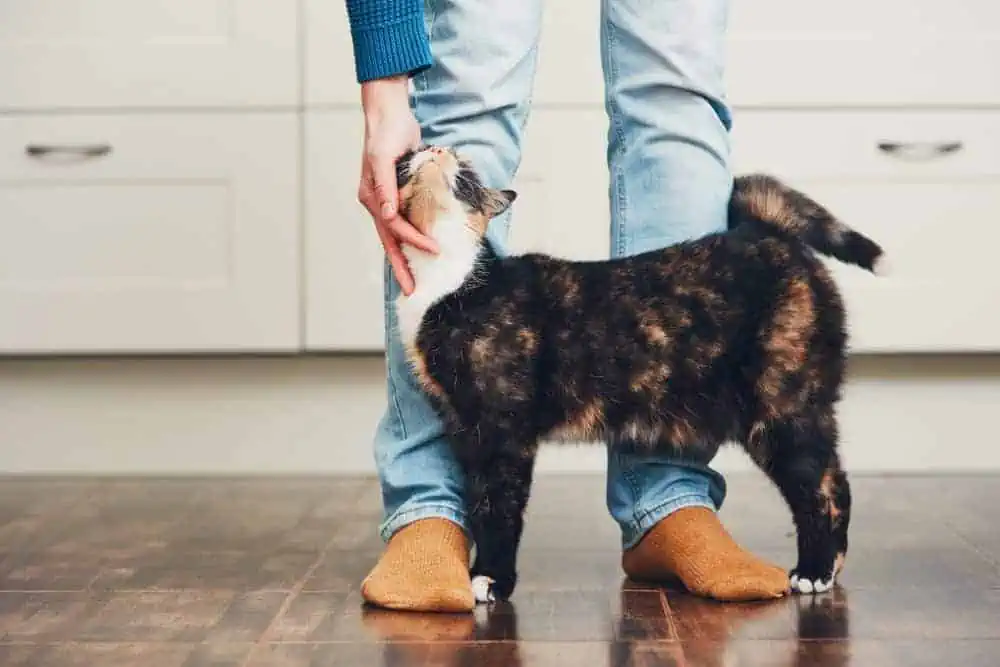
Ever wondered how to make your cat happy? Could the type of pet parent you are have an effect? For example, what are your views on your cat’s hardwired hunting behaviours? According to a new study, cat owners fall into five categories in terms of their attitudes to their pets' roaming and hunting activities, providing a better understanding of the cat/human relationship
The cat habit of bringing back little ‘presents’ from a hunting trip is something that even the most devoted feline guardian can find a little unsettling. However, most accept this as a natural part of cat behaviour that they just have to put up with. Or is it? Researchers from the University of Exeter have investigated the issue for the benefit of cats, their owners and wildlife.
The team surveyed 56 cat owners, some from rural parts of the UK (mostly in south-west England) and some from urban areas (Bristol and Manchester) and found they fell into five distinct categories:
- Conscientious caretakers – concerned about cats' impact on wildlife and who feel some responsibility
- Concerned protectors – focused on cat safety
- Tolerant guardians – dislike their cats hunting but tend to accept it
- Freedom defenders – oppose restrictions on cat behaviour altogether
- Laissez-faire landlords – largely unaware of any issues around cats roaming and hunting
The Exeter team's ongoing research project – Cats, Cat Owners and Wildlife – aims to find a conservation win-win, by identifying ways owners can manage their cats that benefit their feline friends as well as reducing the impact on wildlife.
The value of outdoor access
“Although we found a range of views, most UK cat owners valued outdoor access for their cats and opposed the idea of keeping them inside to prevent hunting,” said lead author Dr Sarah Crowley of the University of Exeter's Environment and Sustainability Institute in Cornwall. "However, only one of the owner types viewed hunting as a positive, suggesting the rest might be interested in reducing it by some means.”
Suggested measures to enable cats to exhibit natural hunting behaviours but reducing the chance of success include fitting cats with brightly coloured Birdsbesafe® collar covers. Songbirds have unique eye anatomy that makes bright colours appear extra-bright, even in low light such as at dawn. So, if a cat is wearing one of these collar covers, birds notice it from a distance and have enough time to fly to safety. A recent US-based, independent scientific study has predicted that Birdsbesafe® cat collar covers will reduce the number of birds caught by 87% annually. Some owners also fit their cat’s collar with a bell.
Working together for a positive effect
The research team are now examining the effectiveness of these and other new measures and how owners feel about them, with a view to offering a range of solutions.
“This latest research reveals the incredibly diverse perspectives amongst cat owners in regard to their pets' hunting behaviour,” says Tom Streeter, Chairman of SongBird Survival.
“The study highlights the urgent need for cat owners and conservationists to work together to find tailored solutions that are cheap, easy to implement, and have a positive effect on wildlife and bird populations across the UK.”
International Cat Care's Head of Cat Advocacy, Dr Sarah Ellis, comments: “The finding that many UK cat owners actually care a great deal about wildlife conservation and their cats' impact on it suggests that some owners are receptive to employing cat-friendly ways of reducing hunting. The right interventions could improve wildlife conservation efforts, maintain good cat mental-wellbeing, and at the same time improve the cat-human relationship.”
Which category of cat owner do you fall into?
Alongside the detailed research survey, the researchers have also created a fun quiz so cat guardians can find out which category bests describes them. You can take part here >>
Is your cat a Burgess cat? Join the Burgess Pet Club for exclusive offers and rewards.
If you found this interesting, you may also like:
GARDEN DESIGNS FOR YOUR CAT Providing your favourite feline with an entrancing outdoor space that they’ll want to spend lots of time in will help to keep them safely out of mischief...
WHAT PERSONALITY TYPE IS YOUR CAT? Are Ragdolls more sociable than British Shorthairs? Do Persians have a tendency to be aloof? Are Maine Coons more independent than Siamese? According to Dr Lauren Finka, a cat’s personality has nothing to do with its breed...
FELINE BEHAVIOUR – STRANGE, BUT TRUE Why does my cat rub around my legs, grab my hand when I tickle his tummy, drink from the tap and knock everything off my desk? Our mission is to solve some of the most puzzling feline mysteries…
HOW CAT FRIENDLY IS YOUR HOME? You may have created a home that’s just perfect for you – but what does your cat think about it?
LONG LIVE CATS! What can you do to help your cat enjoy a happy, healthy and long, long life? Start by following our 12 top tips...
10 THINGS I HATE ABOUT YOU Some of the things that we humans do really aren’t appreciated by our beloved pet cats.
Sources: University of Exeter, sciencedaily.com














